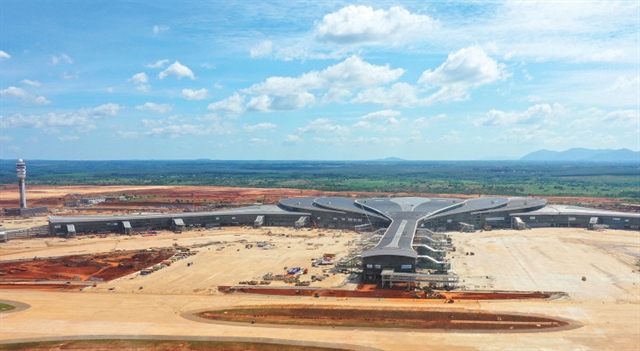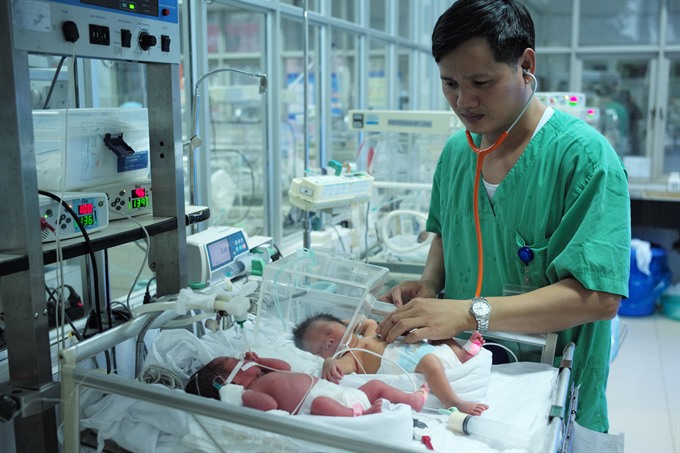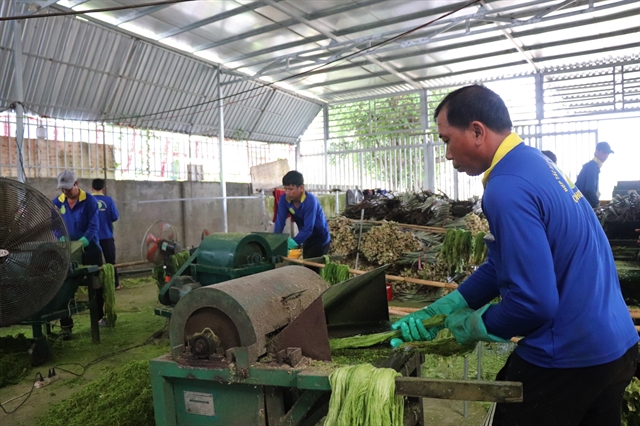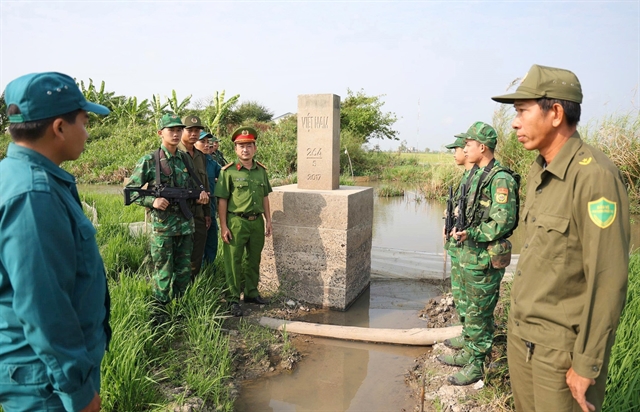 Society
Society

Caring for preemies is a nerve-wracking ordeal at the National Hospital of Obstetrics and Gynecology in Hà Nội.
 |
| Premature babies are given intensive care at the Centre for Neonatal Care at the National Hospital of Obstetrics and Gynecology in Hà Nội. - VNS Photo Việt Thanh |
HÀ NỘI — Trần Gia Hân of Hải Phòng often holds her breath as she stares into the room where her baby is being taken care of.
From the hallway on the second floor of the National Hospital of Obstetrics and Gynecology in Hà Nội, dozens of other parents are doing the same.
Hân’s held her baby girl just once after giving birth a month ago in her 31st week of pregnancy. The baby has been in intensive care since.
“Sometimes while watching her sleep, I get terrified at the thought that she would sleep forever,” Hân told the Lao Động (Labour) newspaper. “Only when she moves, or when the doctors come out of the room and say she’s doing fine, do I stop holding my breath.”
On the second floor of the National Hospital of Obstetrics and Gynecology, the Centre for Neonatal Care is providing intensive care for about 200 premature babies.
Premature births are those that occur before the start of the 37th week of pregnancy. About 160,000 babies are born prematurely in Việt Nam each year, according to the Ministry of Health (MoH).
Việt Nam has been listed among 42 countries with highest rates of infant mortality, with premature deaths accounting for 25 per cent of infant deaths, according to the World Health Organisation (WHO).
Hà Nội resident Nguyễn Thu Hường’s baby girl has been at the centre for two months. Born in the 25th week of pregnancy weighing just 800 grams, she was transferred to the centre immediately after birth, put into an incubator and provided with positive-pressure ventilation, antibiotic treatment and phototherapy.
“I feel terrible that she has to be away from me for so long, but she now weighs 1.8 kilograms,” Hường said. “The doctors have said she will be able to go home soon.”
Strict procedures have to be followed in caring for premature babies, each of whom has an ID number. Their conditions decide how long they will stay at the centre. When they are at their weakest, they occupy an intensive care unit in the middle of the centre and are moved to adjacent rooms as they get better. Those placed in rooms closest to the centre’s door are those about to go home soon.
Dealing very closely with the newborns, the doctors and medical staff of the centre are keenly aware of the progress each one makes. They know each baby’s name, weight and family situation by heart, and recognise parents without having to see any IDs.
They all feel a tug in their hearts on seeing these tiny figures, only a few days old and already surrounded by all types of cords and medical equipment, said Dr Lê Minh Trác, director of the centre.
“Especially those of families who’ve lost children after birth before. Looking at them, it occurs to me that I am not just saving a child, but the glimmering hope of their families.”
There are seven major factors in caring for preemies that need to be focused on, including resuscitation, body temperature, respiration, hypoglycemia, nutrition, jaundice and enteritis, Trác said.
The babies are constantly at risk of being suffocated and having hypothermia, infections and hemorrhages, he added.
Caring for preemies is a nerve-wracking ordeal, said Lê Thị Hiền, a nurse at the centre.
“Our hopes rise and drop in accordance with their weight and the oxygen indicators in their blood,” she said. “Timely treatment is crucial. We don’t dare leave them out of sight for one second for fear of unfortunate incidents.
“But it is a joy to watch them grow from premature babies that fit in the palms of my hands into beautiful, healthy ones.” — VNS




